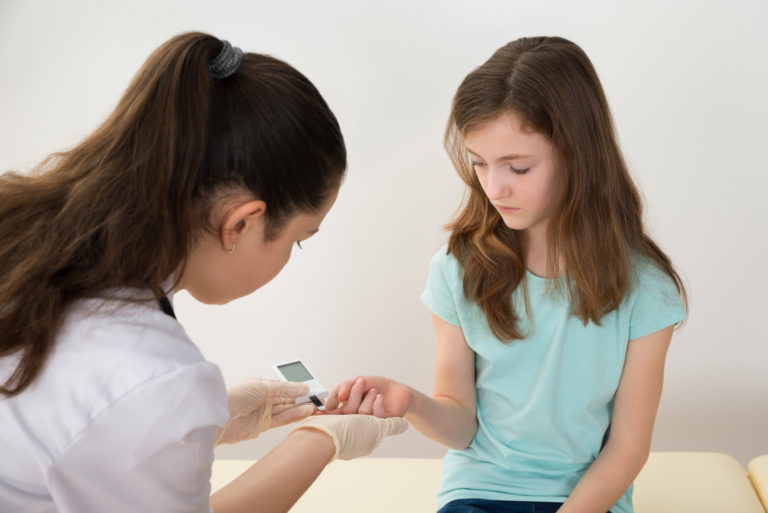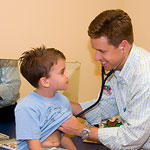 We call type 1 diabetes juvenile diabetes because it’s often discovered in childhood. Unlike type 2 diabetes, which is often the result of diet and lifestyle, type 1 diabetes may be the result of genetics or exposure to some viruses.
We call type 1 diabetes juvenile diabetes because it’s often discovered in childhood. Unlike type 2 diabetes, which is often the result of diet and lifestyle, type 1 diabetes may be the result of genetics or exposure to some viruses.
Type 2 diabetes is far more common and refers to a state in which the body becomes resistant to insulin. A child with type 1 diabetes, on the other hand, may produce little insulin to none at all. Our pancreas produces this hormone to help sugar enter our cells and produce energy.
What Are the Symptoms of Type 1 Diabetes?
The symptoms of type 1 diabetes may come on quickly and include:
- Increased thirst and urination
- Constant or extreme hunger
- Unexplained weight loss
- Bedwetting (especially in children who didn’t previously have problems)
- Blurry vision
- Complaints of fatigue or weakness
What Causes Type 1 Diabetes?
According to the American Diabetes Association, there are about 1.25 million people in the United States living with type 1 diabetes and another 40,000 will be diagnosed this year. Despite active research, we still don’t know exactly why some children get type 1 diabetes. We know that exposure to some illnesses in childhood may play a role, and genetics is often a factor. Children are most likely to receive a diagnosis between 4 and 7 or 10 and 14 years old.
Can It Be Cured?
There is no cure for type 1 diabetes, but with proper management, kids can live healthy, strong lives. Lifestyle and adherence to your doctor’s treatment plan is essential. Left untreated, type 1 diabetes can cause serious complications, including heart disease, nerve damage, kidney damage, and skin conditions.
Your child’s doctor will likely recommend taking insulin, limiting simple carbohydrates, exercising regularly, and maintaining a healthy weight. The goal is to keep your child’s blood sugar levels as close to normal as possible to prevent possible complications.
Encourage a Healthy, Active Lifestyle
If your child received a type 1 diabetes diagnosis recently, management and treatment protocols can seem overwhelming. Checking your child’s blood sugar often is essential and will take some getting used to. The American Diabetes Association recommends blood sugar checks before meals and snacks, before bed, or any time you suspect your child has low blood sugar. If you’re having difficulty completing you child’s blood sugar checks, talk to your doctor for advice.
A diet rich in fruits, vegetables, and whole grains is also helpful. Your child’s doctor will likely recommend limited animal products and simple carbohydrates such as sweets and white bread. We may recommend meeting with a registered dietician to keep your child’s nutritional needs on track.
The information and content on our website should not be used as a substitute for medical treatment or advice from your doctor.
Model/stock photo above.




